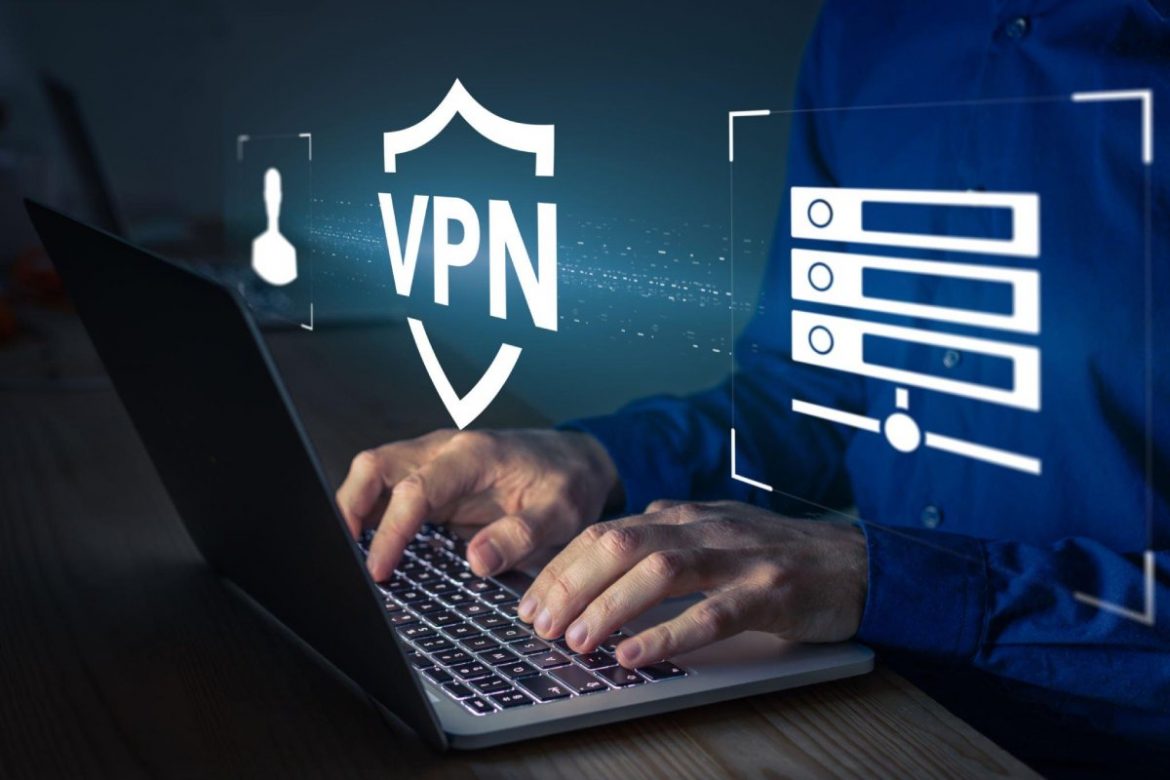What are the Benefits of Using a Virtual Private Network? – With VPNs becoming more common, it’s only logical to wonder why anybody would want to have one. You see, it is that easy. The primary justification is for the security of your online actions. Data encryption is the most effective way to keep it safe from prying eyes, whether certain eyes belong to criminals, your Internet service provider, or ad networks. The software has several uses, such as protecting your privacy and concealing your IP address. Keep reading for all the juicy information regarding its abilities.
Table of Contents
Explain what a virtual private network (VPN) is.
A VPN is a method through which data transmissions over the internet are encrypted so that they cannot be intercepted by other parties. Using this method, your online activities will be safer and less likely to be monitored.
It has been shown via research conducted by Security.org that digital security and confidentiality are of growing concern to the average individual.
Various types of online intrusions, such as data harvesting, phishing, and fraud, have led several to want more security. While a virtual private network does do that, you’ll soon learn that’s not everything they’re good for.
Protect your online privacy from prying eyes.
A virtual private network bolsters your online anonymity by redirecting your Internet data via an authenticated, private route and masking your true IP address. VPN customers, therefore, may go about their online business without fearing being monitored by their service provider or any other third party. This will prevent your Internet service provider (and by extension, the authorities) from monitoring your data and will also prevent you from leaving a trail of data that may be used to trace your identity.
It doesn’t qualify you as a conspiracy theorist to worry about being followed and observed digitally. If you weren’t monitored, no nation would ban VPNs.
Avoid having your information copied and sold.
Inside the United States, ISPs like AT&T and Comcast may lawfully share user information with third parties like advertisements. Doubts regarding leaks of databases, which might expose users’ data in unscrupulous areas like deep web message boards, add to the existing security fears. Using a VPN is recommended if you do not wish for your information to be exposed in the event of a large-scale security flaw.
When using a virtual private network, your data is sent over a secure tunnel to the VPN server, where your real IP address is never seen. In this manner, the IP address of the server will seem to be your own to the rest of the web. However, that’s not enough to protect you from ISPs that sell your data to other parties. To keep your info unintelligible, you require encryption, and a VPN automatically encrypts all of your information as it travels from your gadget to the site.
Stop Phishing!
The widespread use of “phishing,” an internet fraud where an imposter poses as a trusted business or individual, is a major problem. Verizon researched to determine the efficacy of a phishing assault, and after collecting data from over 2,000 different companies and 3 million individual consumers, they found that 7.3% of the phishes were effective. Customized phishing efforts have an estimated 9 times greater success rates.
A virtual private network (VPN) isn’t a foolproof shield against social engineering, but it may lessen the likelihood that any phishing efforts will succeed in accessing you in the initial place. Your vulnerability to phishing attacks will decrease if and only when your data can be accessed solely through IP masking and encrypted connections.
Avoid becoming a focus of marketing
While marketing techniques aren’t as dangerous as cyber phishing, they’re nevertheless a constant annoyance. All the information you publish online makes it accessible. The use of a virtual private network may significantly reduce the number of personalized adverts you see online. Your IP address is similar to a digital signature; it lets advertisers follow you around when you visit different websites so that they may show you more relevant adverts. VPNs make it difficult to track your online activities by constantly changing your IP address.
Subvert unfair pricing practices
You can save costs by adopting a virtual private network (VPN), right? Disparities in pricing are common, particularly in the tourism business. Prices for airfare, lodging, and other travel-related items may vary by as much as $500 US or more each trip, based on whether you are booking from Ontario or Rome.
You may make it seem like you’re in any place wherever your VPN service has connections by utilizing a virtual private network. Switching to a new server will effectively give you a new IP address and hence a new virtual address. Have a competitive rate by doing a quick cost analysis by yourself.
Make sure everything is safe
Keeping your PC safe online isn’t the only concern. In theory, any internet-connected gadget might be attacked. If you often read your text or email messages while out and about, you might think about installing a VPN on your phone to secure yourself from potential phishing scams.
This still holds for VPN streaming services; your TV may not store a lot of sensitive data, but it is still a possible entry point for attackers. Use of a virtual private network on a Firestick or the same technology is your sole guarantee of concern-free viewing.
Conclusion: The list of benefits that VPNs provide is extensive.
We have little control over our online experience for several reasons, including the inability to hide our digital footprints, the prevalence of geo-blocked content, the dangers of using free Wi-Fi, and the inequitable nature of digital pricing. A virtual private network isn’t a silver bullet that will keep your data safe in every situation, but it provides sufficient anonymity to frighten totalitarian governments into prohibiting it. If this isn’t a problem for you, you should still use a VPN for the additional factors I just listed!


